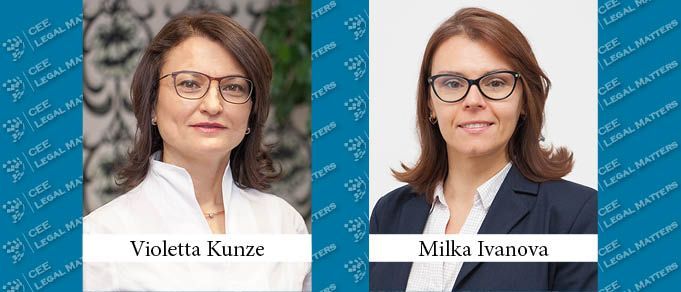There were more than 2.7 million vehicles in Bulgaria in 2018, 319,639 of which were newly registered. Yet it appears that such figures, even in a country with a population of less than seven million, don’t necessarily create an opportunity for the development of connected car services. Why aren’t connected cars more significant and widely-used in Bulgaria?
Stakeholders in the Bulgarian connected car ecosystem (including car manufacturers, mobile network providers, connected car and fleet management services providers, and car owners) generally encounter a vehicle fleet dominated by cars at least five years old and legislation dealing with “classic” connectivity services such as Internet access and fixed/mobile voice services or SIM cards managed as physical assets (i.e., physically provided and manually plugged in). Despite the fact that Bulgarian legislation lags behind the latest technological developments, it is potentially flexible enough to embrace any service providing for connectivity as an underlining feature as a “telecom service.”
“Connected” cars are vehicles that use connectivity (i.e., a conveyance of signals) in order to provide navigation, phone integration, remote services (lock, horn, tracking stolen vehicle), remote diagnostics and maintenance alerts, and entertainment services. Thus, the connectivity (usually based on a pre-installed SIM) is a core part of connected car services. The Bulgarian Electronic Communications Act, however, is based on the legal concepts of the 2002 European telecoms regulatory framework (which hasn’t undergone any major amendments since 2009) and which defines an electronic communications service (ECS) as one that involves “wholly or mainly” the “conveyance of signals” without providing any details how “mainly” should be interpreted. In order to avoid the burdensome telecommunications regulations, car manufacturers (or connected car/fleet management services providers) should therefore either avoid providing connectivity or develop the service so that it avoids being qualified as involving “mainly” conveyance of signals. The first approach seems unrealistic, as, due to the existence of region-specific regulations (such as eCall under EU law) car manufactures, for example, already use connectivity solutions embedded in cars. Indeed, manufacturers don’t provide the connectivity themselves and count on third parties.
Fortunately, however, there is room for doubt as to whether connectivity is the “main” part of the service. Indeed, if the Bulgarian regulator (the Communications Regulation Commission, or CRC) chooses to assess the service based on whether, from a functional point of view, it includes the conveyance of signals, there is a huge potential to claim that the connected car service is an ECS. This claim could be supported by the fact that connected car services may be based on machine to machine (M2M) connectivity and that such services under Bulgarian law should qualify as an ECS. This is because the statutory definition of M2M services is based on data transfer, and data transfer services are explicitly included in the “List of the networks and services by virtue of which electronic communications services under general rules shall be provided.” Yet the connected car service rarely represents pure connectivity; instead, it’s a complex service dealing with telemetric, telematic, entertainment, and other services focusing primarily on the content and experience, rather than on the connectivity itself. Given such purely theoretical reasoning, it’s feasible to claim that under Bulgarian law connected car services should not be subject to ECS regulation.
Unfortunately, the CRC is committed to a case-by-case assessment approach, which – due to the lack of publicly available information related to such assessments – doesn’t help the stakeholders. Both legal practitioners and connected car service stakeholders know that using guidelines is a rare practice in Bulgaria, as guidelines aren’t statutorily binding and thus don’t contribute to legal certainty. This is unfortunate, as all players would benefit from knowing the official position of the regulator. In fact, the CRC has a new and unprecedented opportunity to issue clear guidance, as the upcoming transposition of the European Electronic Communications Code in Bulgaria provides a chance to clarify the legal nature of connected cars as well as other digital services. Any official position (regardless whether through a statutory instrument or a public statement) will be more than welcome. Its absence leaves space for factional regulatory compliance.
By Violetta Kunze, Partner, and Milka Ivanova, Senior Associate, Djingov, Gouginski, Kyutchukov & Velichkov
This Article was originally published in Issue 6.8 of the CEE Legal Matters Magazine. If you would like to receive a hard copy of the magazine, you can subscribe here.



